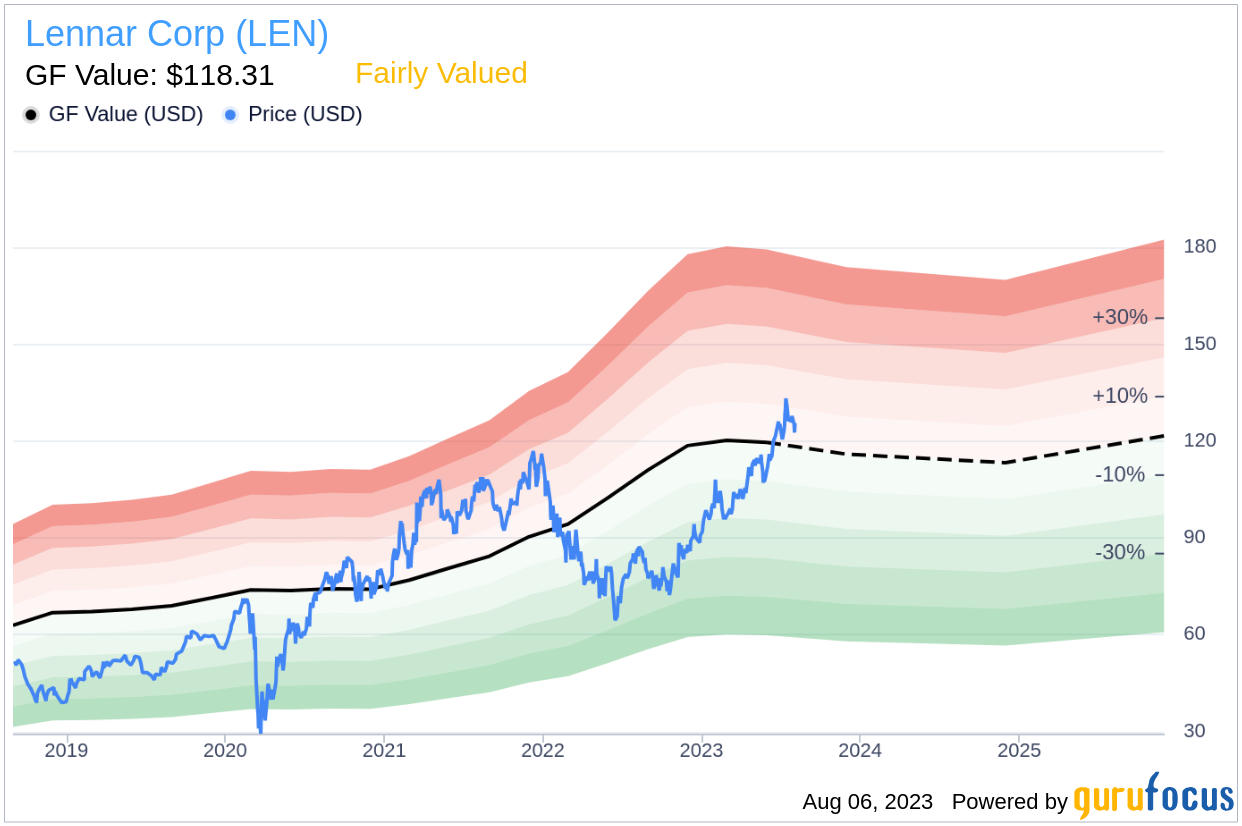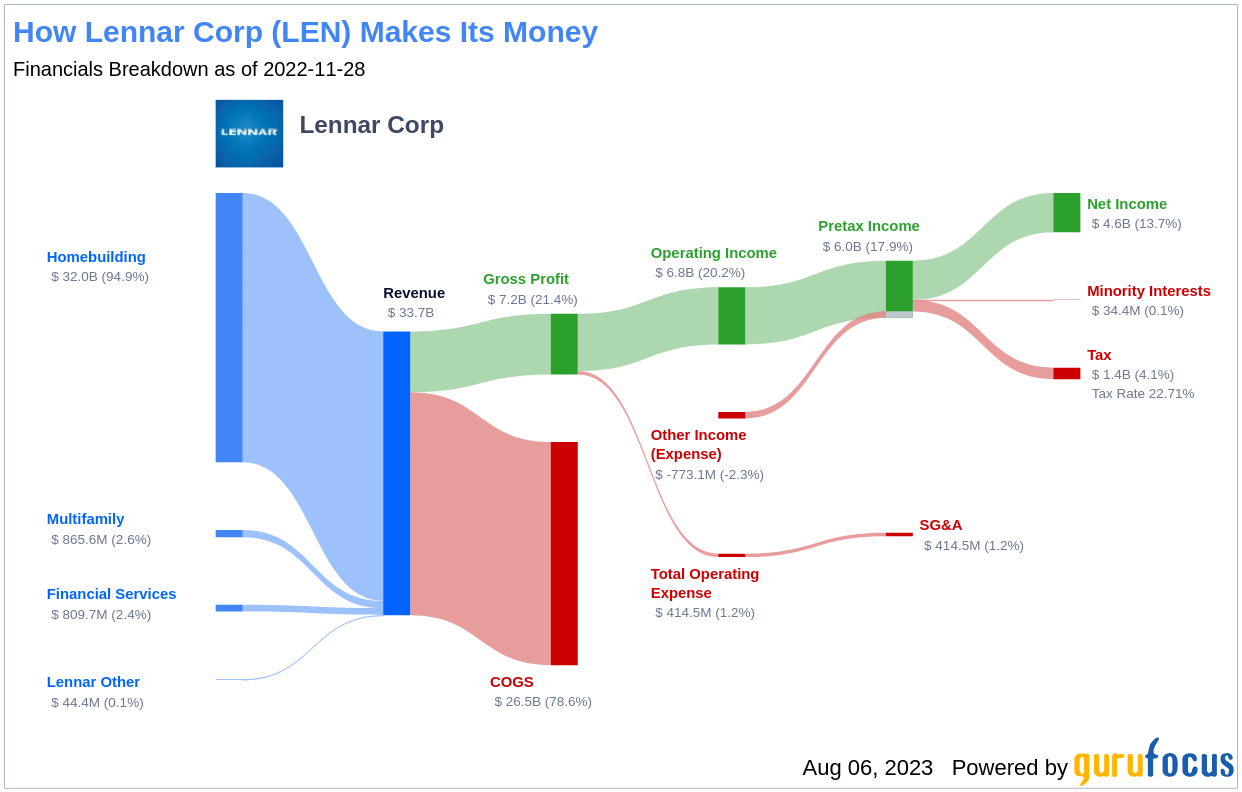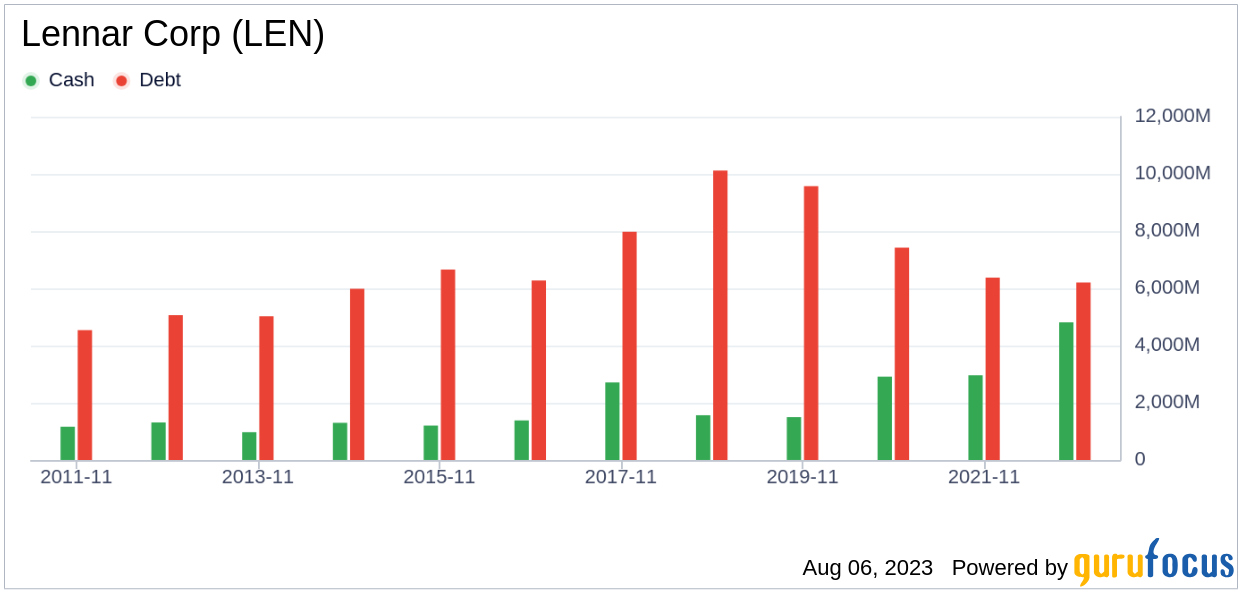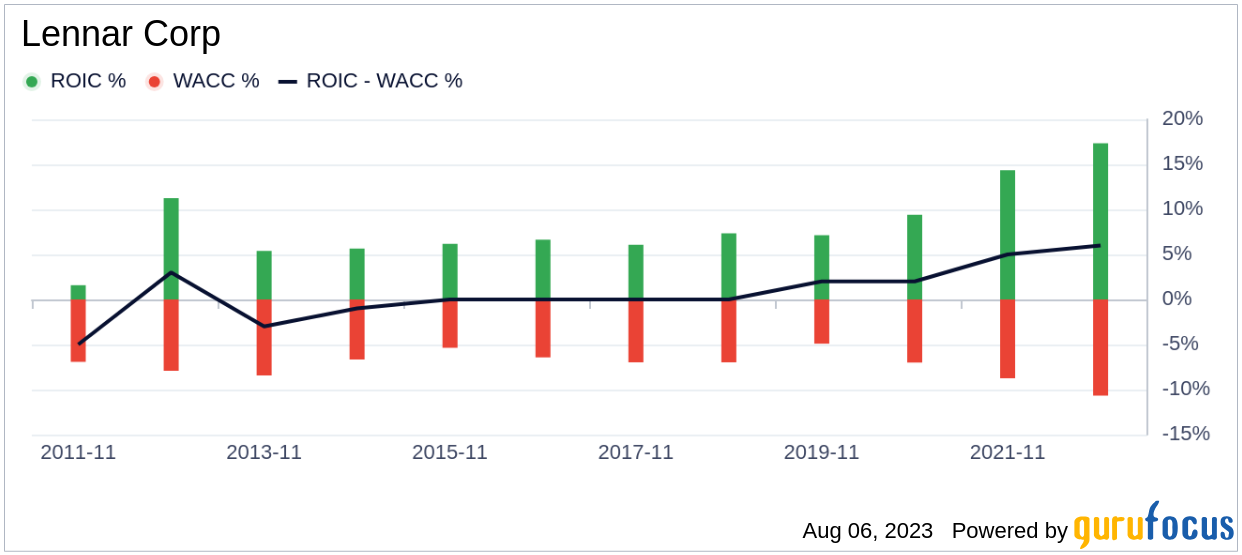With a day's gain of 2.39% and an Earnings Per Share (EPS) of 14.65, Lennar Corp (LEN, Financial) presents an intriguing case for value investors. Is this stock fairly valued? This article provides an in-depth valuation analysis of Lennar (LEN), offering a comprehensive understanding of its intrinsic value. Read on to gain valuable insights into this leading homebuilder's financial health and growth prospects.
About Lennar Corp (LEN, Financial)
Lennar Corp (LEN) is the second-largest public homebuilder in the United States, trailing only D.R. Horton in the number of delivered homes. Predominantly operating under the Lennar brand name, the company targets first-time, move-up, and active adult homebuyers. In addition to its homebuilding operations, Lennar provides mortgage financing and related services to its homebuyers through its financial-services segment. The Miami-based company is also engaged in multifamily construction and has invested in numerous housing-related technology startups.
As of August 6, 2023, Lennar's stock price is $125.57, with a market cap of $35.7 billion. This valuation is in line with the company's GF Value, an estimation of its fair value, which stands at $118.31.
Understanding the GF Value
The GF Value is a proprietary measure that determines a stock's intrinsic value. It is computed by considering historical trading multiples, a GuruFocus adjustment factor based on past performance and growth, and future business performance estimates. The GF Value Line represents the ideal fair trading value of the stock.
According to the GuruFocus Value calculation, Lennar (LEN, Financial) is fairly valued. This calculation is based on the historical multiples at which the stock has traded, past business growth, and analyst estimates of future business performance. If a stock price is significantly above the GF Value Line, it is considered overvalued, and its future return is likely to be poor. Conversely, if it is significantly below the GF Value Line, its future return will likely be higher.
Given that Lennar is fairly valued, the long-term return of its stock is likely to be close to the rate of its business growth.

These companies may deliver higher future returns at reduced risk.
Financial Strength of Lennar
Investing in companies with poor financial strength carries a higher risk of permanent capital loss. Therefore, it is crucial to review a company's financial strength before deciding to buy its stock. A great starting point for understanding a company's financial strength is examining its cash-to-debt ratio and interest coverage. Lennar has a cash-to-debt ratio of 0.86, which is better than 59.05% of companies in the Homebuilding & Construction industry. GuruFocus ranks Lennar's overall financial strength at 7 out of 10, indicating fair financial strength.
Profitability and Growth of Lennar
Companies that have been consistently profitable over the long term offer less risk for investors. Lennar has been profitable 10 years over the past decade. Over the past twelve months, the company had a revenue of $33.6 billion and Earnings Per Share (EPS) of $14.65. Its operating margin is 17.43%, which ranks better than 78.9% of companies in the Homebuilding & Construction industry. Overall, Lennar's profitability is ranked 9 out of 10, indicating strong profitability.
Growth is arguably the most important factor in a company's valuation. GuruFocus research has found that growth is closely correlated with the long-term performance of a company's stock. The faster a company is growing, the more likely it is to be creating value for shareholders, especially if the growth is profitable. The 3-year average annual revenue growth rate of Lennar is 18.5%, which ranks better than 76.24% of companies in the Homebuilding & Construction industry. The 3-year average EBITDA growth rate is 43.2%, which ranks better than 78.49% of companies in the same industry.
ROIC vs WACC Comparison
Another method of determining a company's profitability is comparing its return on invested capital (ROIC) to the weighted average cost of capital (WACC). ROIC measures how well a company generates cash flow relative to the capital it has invested in its business. The WACC is the rate that a company is expected to pay on average to all its security holders to finance its assets. When the ROIC is higher than the WACC, it implies the company is creating value for shareholders. For the past 12 months, Lennar's ROIC is 14.55, and its WACC is 9.89.
Conclusion
In conclusion, Lennar Corp (LEN, Financial) stock is believed to be fairly valued. The company's financial condition is fair, and its profitability is strong. Its growth ranks better than 78.49% of companies in the Homebuilding & Construction industry. To learn more about Lennar stock, you can check out its 30-Year Financials here.
To discover high-quality companies that may deliver above-average returns, please check out the GuruFocus High Quality Low Capex Screener.



